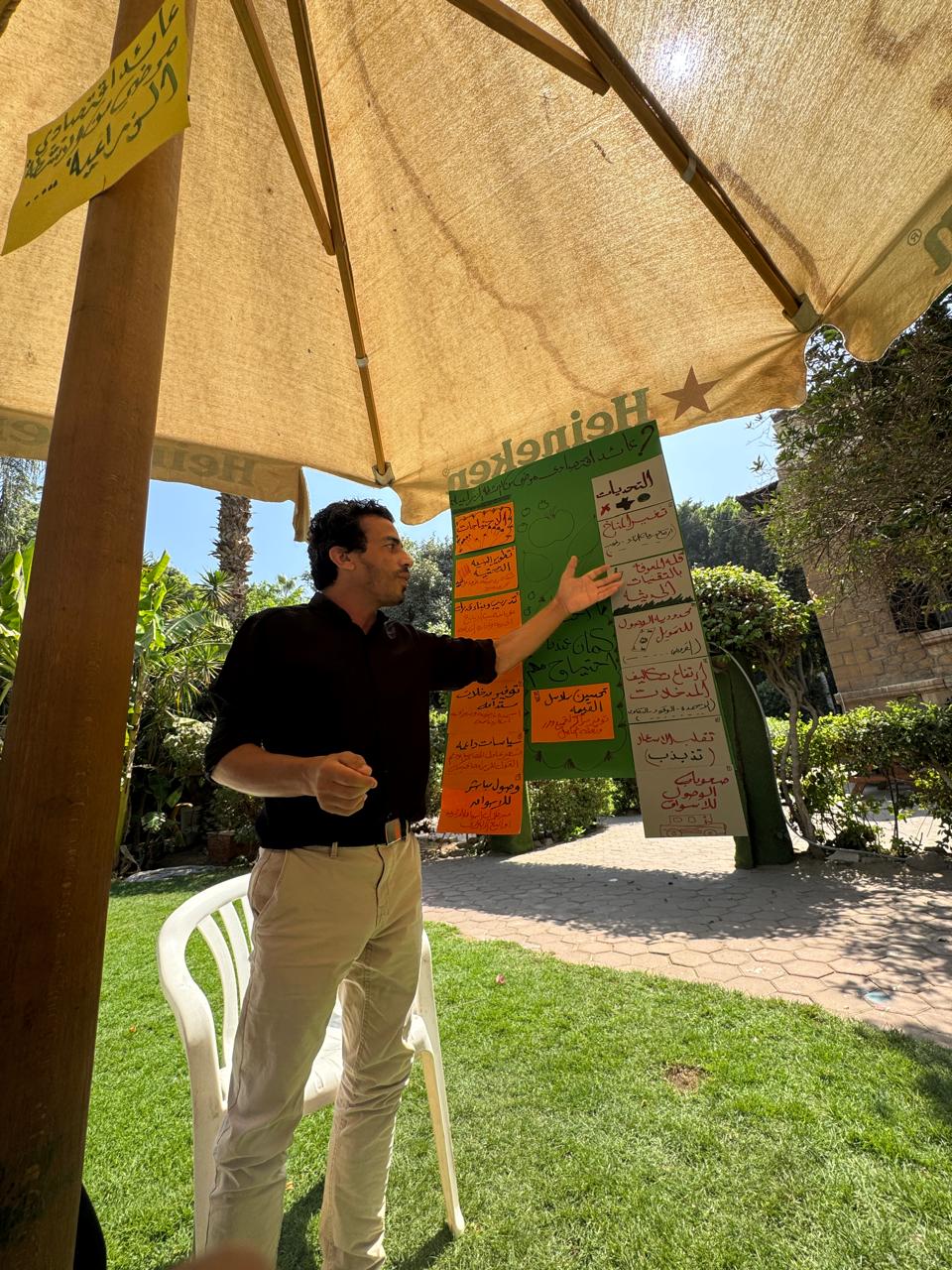The Arab Office Supports the Call to Establish a National Network for Sustainable Agricultural Knowledge Exchange
As part of its ongoing efforts to promote the principles of sustainable development and support the transition toward environmentally friendly food systems, the Arab Office for Youth and Environment (AOYE) participated in a regional workshop entitled “Understanding Agroecology: From Farm to Food System”, held at the Swiss Club in Cairo. The workshop was jointly organized by the Synergies Center for International and Strategic Studies and Nawaya Foundation, with the participation of a distinguished group of experts, researchers, representatives of civil society organizations and decision-makers.
The workshop was convened amid the growing environmental, climate and economic challenges facing agricultural systems in Egypt and worldwide. It shed light on the importance of transitioning toward agroecology as an approach that balances agricultural production with the protection of the environment and natural resources. Representatives of the AOYE took part in the panel discussions, as the association is considered one of the first civil society entities to adopt specialized programs in sustainable agricultural waste management, empowering rural women and supporting young farmers in the implementation of sustainable agricultural practices.
The workshop discussed mechanisms for knowledge exchange among farmers, researchers and civil society. It also, explored opportunities to integrate agroecology into national policies, with a focus on the role of women, marketing, digital agricultural extension and agricultural waste management. In this context, the AOYE representatives emphasized that adopting the concept of agroecology cannot be achieved without changing the culture of production and consumption, and by raising awareness among both farmers and consumers about the importance of sustainable food systems and their link to the community’s food and health security.
The discussions focused on four main pillars representing the foundations of transition toward agroecology. The first pillar addressed agricultural waste management, discussing the challenges of high transportation costs and the shortage of composting sites, alongside opportunities to develop local organic composting initiatives that can become a source of income for rural communities. The representative of the AOYE presented the association’s experience in projects that convert agricultural waste into organic fertilizer in several governorates, contributing to reducing emissions, improving soil fertility, and creating green job opportunities for youth.
The second pillar discussed the marketing of agroecological products, focusing on ways to overcome obstacles faced by farmers in accessing markets, such as weak marketing networks and the discontinuation of projects after funding ends. In this regard, the association stressed the need to activate agricultural cooperatives and develop digital platforms that directly connect producers with consumers, ensuring the continuity of small and medium enterprises in this field.
The third pillar addressed the role of rural women, highlighting the importance of women’s role in preserving traditional food knowledge and developing local healthy food systems. The AOYE called for expanding the scope of rural community kitchen initiatives, integrating traditional foods into school feeding programs, and empowering women to use modern technologies in production and marketing.
The fourth pillar of the workshop focused on digital agricultural extension, through the presentation of digital transformation tools in agriculture and the challenges of limited local content and the lack of farmers’ access to appropriate training. The AOYE proposed establishing visual learning platforms that connect farmers with experts, while employing low-cost technology for field guidance. The association also emphasized the concept of digitalization as a “fundamental pillar in enhancing agricultural sustainability.”
The workshop concluded with a set of recommendations that included integrating agroecology principles into national agricultural extension programs and academic curricula, expanding the use of organic fertilizers and promoting decentralized composting systems in villages. It also called for reviewing the laws regulating agricultural cooperatives to enable them to play a greater role in collective marketing, in addition to establishing a national digital platform for agricultural knowledge exchange, comprising an open-access library, educational videos, and successful farmers’ experiences. The recommendations further included supporting rural women’s projects in home-based food production, launching national awareness campaigns on traditional foods, and encouraging agricultural practices that preserve biodiversity.
At the conclusion of the workshop, participants agreed to move forward in establishing the Egyptian Network for Agroecology, to be legally registered as a union that includes associations, research institutions, and civil society organizations, to serve as a platform for sharing experiences and successful practices. The Arab Office for Youth and Environment affirmed its readiness to contribute to the formulation of the network’s organizational structure and to provide its expertise in capacity-building, environmental advocacy, and rural project management.

